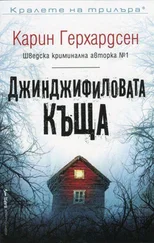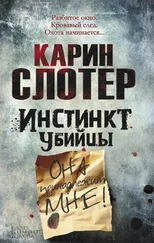Карин Тидбек - Amatka
Здесь есть возможность читать онлайн «Карин Тидбек - Amatka» весь текст электронной книги совершенно бесплатно (целиком полную версию без сокращений). В некоторых случаях можно слушать аудио, скачать через торрент в формате fb2 и присутствует краткое содержание. Город: New York, Год выпуска: 2017, ISBN: 2017, Издательство: Vintage Books, Жанр: Фантастика и фэнтези, на английском языке. Описание произведения, (предисловие) а так же отзывы посетителей доступны на портале библиотеки ЛибКат.
- Название:Amatka
- Автор:
- Издательство:Vintage Books
- Жанр:
- Год:2017
- Город:New York
- ISBN:978-1-101-97395-0
- Рейтинг книги:4 / 5. Голосов: 2
-
Избранное:Добавить в избранное
- Отзывы:
-
Ваша оценка:
- 80
- 1
- 2
- 3
- 4
- 5
Amatka: краткое содержание, описание и аннотация
Предлагаем к чтению аннотацию, описание, краткое содержание или предисловие (зависит от того, что написал сам автор книги «Amatka»). Если вы не нашли необходимую информацию о книге — напишите в комментариях, мы постараемся отыскать её.
Amatka — читать онлайн бесплатно полную книгу (весь текст) целиком
Ниже представлен текст книги, разбитый по страницам. Система сохранения места последней прочитанной страницы, позволяет с удобством читать онлайн бесплатно книгу «Amatka», без необходимости каждый раз заново искать на чём Вы остановились. Поставьте закладку, и сможете в любой момент перейти на страницу, на которой закончили чтение.
Интервал:
Закладка:
Vanja blinked. “A whole room? Why?”
Nina shrugged. “It’s been empty for a while. Olof, the guy who lived there before, moved out last year.”
“In Essre, we’re two to a room. Even three, sometimes.”
“We’ve been short on people for a while.”
“Short? I’ve never heard of a shortage before. Why is that?”
Nina briefly clenched her jaw before giving what sounded like a rehearsed reply. “There was an accident. We lost a hundred comrades. It’s been a while, we’re recovering, and the committee has decided that we don’t talk about it. I’m only telling you this so you’ll know. And that’s all there is to say about it.”
Nina paused. “Textile workshop,” she said, and pointed at the building nearest to them.
“Textile workshop,” Vanja repeated automatically.
They’d already passed the plant houses and entered the factory ring, which consisted of gently curved one-floor buildings with small windows and wide doors. Their facades were all marked with name and function in black, square letters. “Vegetable refinery,” Nina continued, pointing at the next building.
“Vegetable refinery.”
“Medical supplies factory.” It was slightly smaller than the others.
“Medical supplies factory.”
Repair workshop, printing workshop, paper factory. Nina pointed out each one, naming them in turn, and Vanja repeated her words. The factories were smaller than in Essre but seemed to be better maintained. The words painted on them looked wet and fresh.
The streets were all but empty. The few people who passed by walked with hurried steps, and Nina’s voice echoed alone. Vanja stopped and dug her wrist clock out of her pocket.
“What time is it?”
“Ten thirty.”
The clock still worked. It was, however, running either six hours slow or fast. Vanja set it and struggled to put it on, her fingers cold and clumsy. She pulled her sleeves down over her hands and picked the typewriter case up.
They left the factories and entered the residential ring, where narrow alleys separated three-story houses. Through a window in the nearest building, Vanja glimpsed two men by the kitchen sink, one washing dishes and the other drying them.
Nina pointed. “Kitchens are on the ground floor, as you can see, and bathrooms, too. The two upper floors have three rooms each.”
Vanja nodded. “Kitchen and bathroom on the ground floor, three rooms each on the upper floors.”
“On the two upper floors,” Nina corrected.
“Sorry. On the two upper floors. I didn’t sleep very well on the train.”
Nina gave her a pat on the shoulder and pointed to the long children’s house that could be glimpsed farther down the curve of the residential ring. They continued inward to the first ring. A full quarter of its circumference was taken up by the clinic that dwarfed the other facilities. And in the very center, a towering pillar that Nina didn’t need to mention. Vanja knew exactly what it was: the commune office.
Nina pointed out the stores—pharmacy, groceries, clothing, tools, household items, sundries.
“You did bring your credit book, didn’t you?”
Vanja pulled out the little green booklet from the breast pocket of her anorak. It was made of good paper, recycled cellulose from the old world. Personal documents were too valuable to use mere mycopaper. “I got an advance on next month’s credit. And a special one for requisitions.”
“For what?”
“I mean the company’s requisitions. So I can collect things for the study. For my assignment.”
Nina scratched her chin. “You know, we weren’t actually told what it is you’ll be doing here.”
“I’m an information assistant.” Vanja tucked the booklet away. “I’m supposed to find out what kind of hygiene products people use here. Soap and such. So the company knows what products they should try to launch here.”
Nina hummed. “I suppose it’s mostly the commune’s own products. I don’t know what it’s like in Essre, but nothing much changed here after they allowed free production. People around here, they like familiar things. But why did you have to come all the way out here to find that out? Don’t you know all about these things in Essre already?”
Vanja shook her head. “The administration does, I guess. But it takes so long to get the facts; it’s forms here and forms there. There are so many new companies now. And my supervisor wanted more than just figures. She wants to know what people want. So here I am.”
“How many of you are there in this…”
“The Essre Hygiene Specialists,” Vanja said.
“You can just call it E.H.S.”
“How many employees are you at E.H.S.?”
“Twenty, but I am the first to venture out of Essre as part of this new program.”
“Wow,” said Nina. “And you’re going to make us use our credit to buy your soap.”
“Yes.”
“Why? I mean, what difference does it make?”
“I don’t know,” Vanja replied. “Because it’s new.”
“I don’t know if I think that’s a good thing,” Nina said. “We’re here.”
They’d made their way through the center and arrived at the residential houses on the other side. Nina turned down the row and opened the third door on the right, marked HOUSEHOLD NUMBER 24. She set the suitcase down in the little hallway and opened the door to the kitchen.
The ground-floor kitchen and common room was sparsely furnished and had only two small windows. Under the one facing the street was a stove and a kitchen counter with shelves and an inlaid sink. A small refrigerator rattled in the corner. Cans and carefully sealed bags were lined up in neat rows on the shelves of the doorless pantry next to the fridge. Everything looked old and worn but carefully marked. Vanja thought of her own kitchen, where the labels were scratched and worn: not so here. The long dining table against the far wall was covered by a bright yellow cloth that was almost luminous in the drabness.
A slender man with his plaid shirt stuffed into a pair of green dungarees stood by the sink with a steaming cup in his hand. He put it down and came to greet Vanja.
“This is Jonids’ Ivar,” said Nina. “Ivar, Brilars’ Vanja.”
“Welcome.” Ivar’s handshake was dry and light. He briefly met Vanja’s eyes before looking away. His dark eyes were bloodshot. “Hello. And good-bye. I’m off to my shift.”
He stepped past Nina, who stroked his back, and into the hallway.
“So that was Ivar,” Nina said when he’d closed the door behind him. “He works at the mushroom farms. He’s really very sweet. He’s just a little terse.”
“Don’t you have to go to work?”
“I’ve got the day off. So if you want me to take you anywhere or something, just ask. Otherwise I’ll probably be reading in my room.”
Nina gave her a tour of the kitchen, which looked just like the one at home. Everyone took turns buying food according to a shopping list displayed on the fridge door. Behind the kitchen there was a bathroom. Then Nina guided Vanja back into the hallway and up the narrow stairs to the apartments. The door on the first landing had only one name on it: DOOR. HERE LIVES SAROLS’ ULLA THREE.
“That’s where Ulla lives,” said Nina. “She used to be a doctor.”
“She has this floor all to herself?”
“I suppose you think that’s strange, but yes, she does.”
Vanja shuddered. “I see.”
“We check in on her every day, go around the rooms and mark everything. You’re very welcome to help. She’s getting a little senile, but she means well.” Nina continued up the next flight of stairs. “The alternative is to leave some houses empty, Vanja.”
Vanja’s room was of standard size but furnished for one person instead of two. The bed by the far wall had a thick mattress and ample storage space under its high frame; a quilted duvet, a worn blanket, and a pillow lay neatly stacked at the foot of the bed. By the window a small desk and a chair had replaced the usual second bed, but there were still two storage cabinets that Vanja would have all to herself.
Читать дальшеИнтервал:
Закладка:
Похожие книги на «Amatka»
Представляем Вашему вниманию похожие книги на «Amatka» списком для выбора. Мы отобрали схожую по названию и смыслу литературу в надежде предоставить читателям больше вариантов отыскать новые, интересные, ещё непрочитанные произведения.
Обсуждение, отзывы о книге «Amatka» и просто собственные мнения читателей. Оставьте ваши комментарии, напишите, что Вы думаете о произведении, его смысле или главных героях. Укажите что конкретно понравилось, а что нет, и почему Вы так считаете.












![Карин Тидбек - Аматка [ЛП]](/books/438406/karin-tidbek-amatka-lp-thumb.webp)